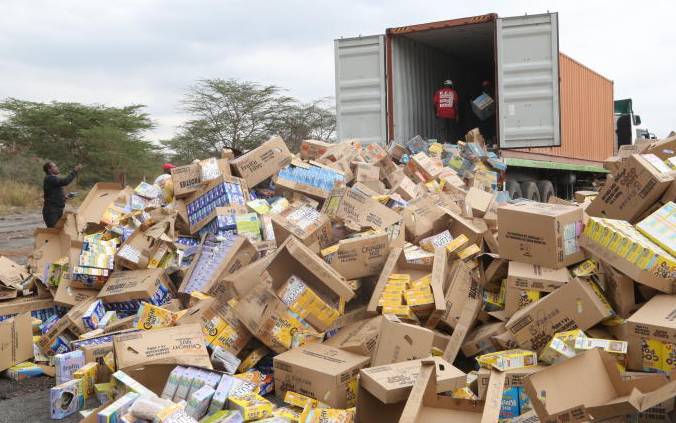×
The Standard e-Paper
Fearless, Trusted News

Some of contraband and anti-counterfeit goods that are to be crushed and destroyed by multi agency officials in Athi river.[ Willis Awandu/Standard]
Small scale importers are feeling the pressure as the government cracks down on importation of counterfeit products into the Kenyan market.